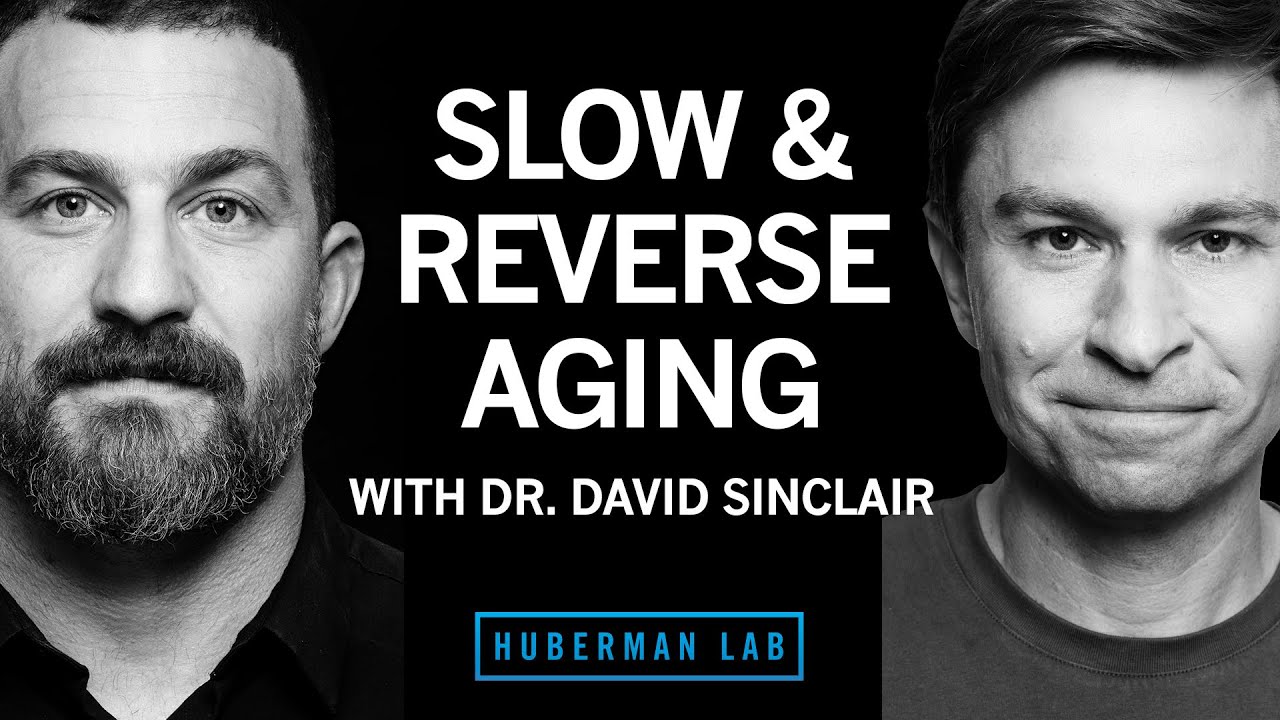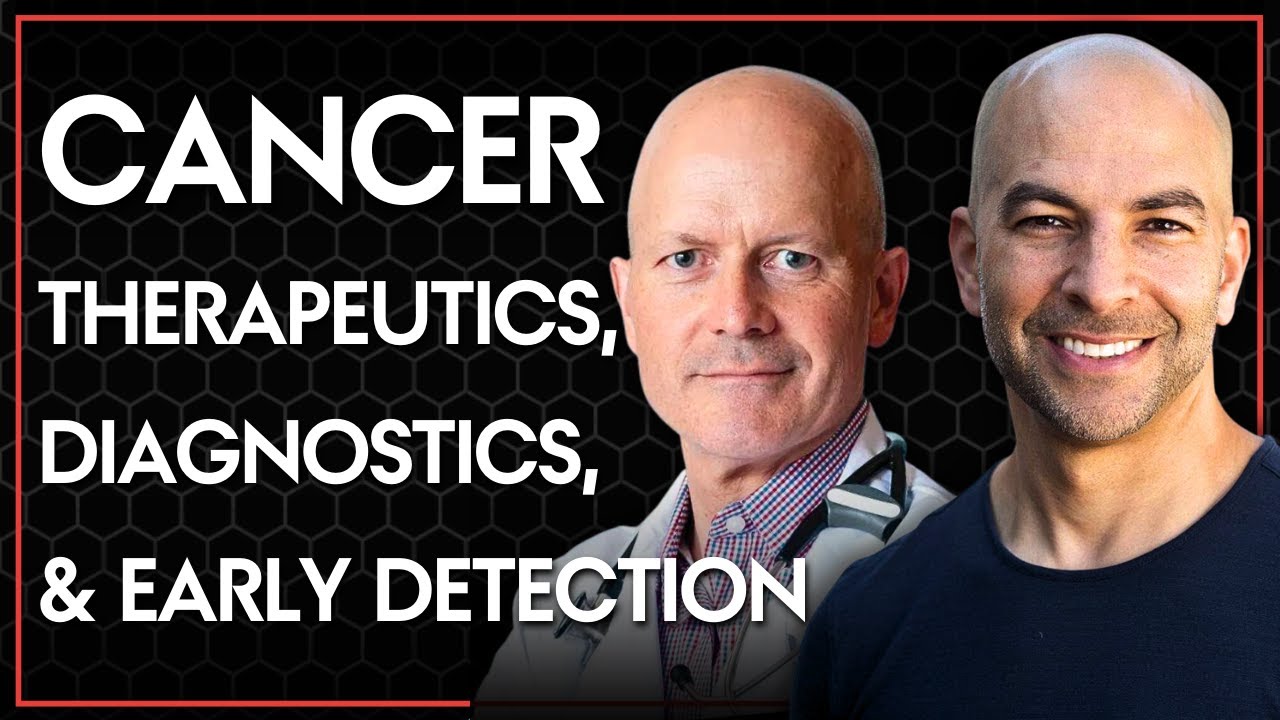- What is a ketogenic diet and how this and other low-carb diets can be used to treat mental health conditions, such as depression, OCD, and anxiety, as well as alcohol addiction and age-related cognitive decline.
- The role of ketones as an alternative energy source for brain cells and the potential benefits of ketosis for cognitive function.
- The critical, multifaceted role of mitochondria in brain energy production and how approaches like the ketogenic diet may influence mitochondrial function and improve mental health disorders.
- Whether or not supplementing with liquid ketones is an effective alternative to deal with mental disorders for those who struggle to adhere to a ketogenic diet.
- Strategies for tailoring ketogenic diets to different people and how to manage the potential side effects in sleep and mood.
- The interaction between ketogenic diet, hormones, menstrual cycles, and fertility.
- The obesity pandemic and how new semaglutide medications might help tackle it.
Diet & Nutrition for Mental Health
Diet & Nutrition for Mental Health
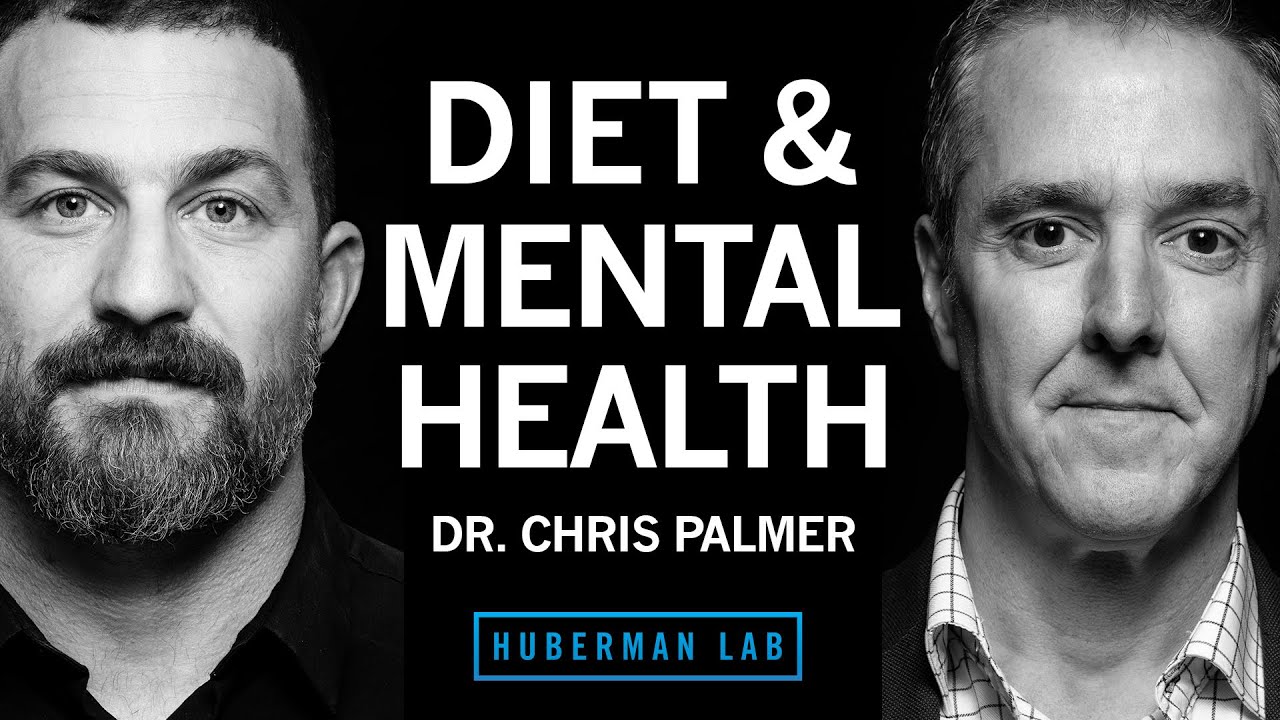
- If interested in trying a ketogenic diet, start by gradually reducing carbohydrate intake while increasing healthy fats and moderate protein. This can help your body adjust more smoothly to ketosis.
- If you’re on psychiatric medication such as antidepressants and want to try a ketogenic diet, do not stop your meds cold turkey – it can be dangerous. Instead, speak with your mental health care professional about making micro and macro adjustments to both your medication and nutrition.
- Many people suffering from anxiety and depression will notice huge improvements in well-being by simply steering clear of processed foods that are high in both sugar and fats.
- People suffering from depression, as well as those with psychotic or bipolar disorders, should aim for high levels of blood ketones when using a ketogenic diet as treatment. For depression, at least 0.8 mmol/L; for disorders, more than 1.5 mmol/L.
- Small trials have shown that, for some people, simply reducing carbohydrate consumption at breakfast and lunch can result in cognitive improvement.
- Obese people undertaking a ketogenic diet (whether for weight loss or for brain health) should limit their carbohydrate intake to under 20 grams per day. Structure meals around quality protein sources, vegetables, and healthy fats such as avocados, olive oil, nuts, and fatty fish.
- Slim people who are on a ketogenic diet should make sure they eat a lot of fat (e.g. avocados, olive oil, butter, heavy cream, etc.) given that they don’t have stores in their bodies.
- If experiencing hypomania or other side effects on a ketogenic diet, consult a healthcare provider for adjustments. These could involve enforcing a longer sleep schedule, tweaking macronutrient ratios, taking supplements like melatonin or magnesium, or experimenting with eating carbohydrates in the evening.
- People who are neither under psychiatric care nor taking prescription medicines but are feeling burned out and exhausted can try to restrict carbohydrate intake for a while and see if that produces clinical benefit.
- Purchase a reliable ketone meter to monitor your ketone levels. Regularly checking your ketone levels can help ensure you're in ketosis and provide insights into how different foods affect your body.
How Diet & Nutrition Can Improve Mental Health
The ketogenic diet is a form of nutrition-based treatment. It was originally developed to mimic fasting and reproduce its benefits in reducing seizures. Indeed, the keto diet has proven effective in cases of epilepsy and more recently, it has also been heralded as a powerful way to lose weight. But the truth is, there’s much more to ketogenic diets…
The Potentials of Ketogenic Diets for Mental Disorders
The ketogenic diet consists of low carbohydrate intake and lots of healthy fats. Essentially, it prompts the body to enter a state called ketosis, where it burns fats for energy instead of carbohydrates. Ketosis offers a myriad of potential benefits, particularly for the brain. Although there are currently no large randomised controlled trials documenting the efficacy of ketogenic diets for psychiatric disorders, several case studies have pointed to its benefits for people with chronic depression, bipolar disorder, and schizophrenia.
The diet’s power is related to how it influences several neurotransmitter levels and gene expression, reduces brain inflammation, improves insulin resistance, and even positively affects the gut microbiome. But perhaps most important, is what this diet does to mitochondria.
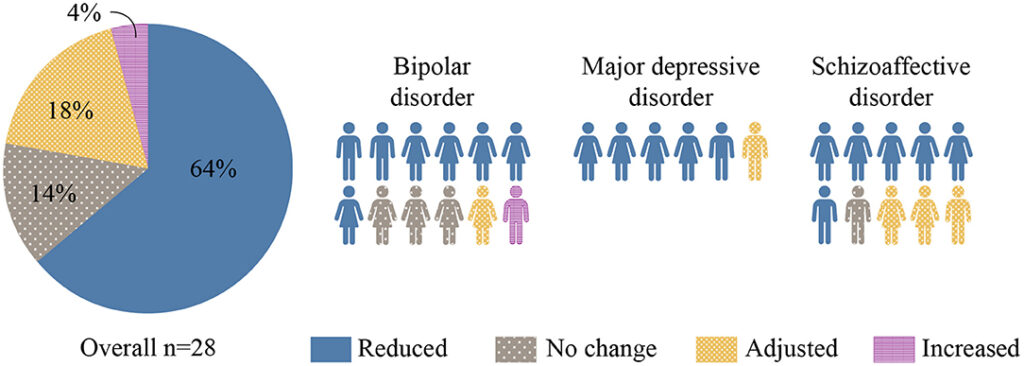
Source: https://www.frontiersin.org/articles/10.3389/fpsyt.2022.951376/full
The Surprising & Multifaceted Roles of Mitochondria
Mitochondria are often seen as the powerhouse of our cells — they create energy from food and oxygen. But there’s a lot more to them. They manage resources within cells and produce important chemicals for our brain, like serotonin and dopamine. They’re in charge of gene expression; they’re involved in our response to stress, influencing things like adrenaline, and also regulate inflammation. They even help create hormones like cortisol and testosterone! Needless to say, these are all factors that affect our mental health. And they may also be the reasons why the ketogenic diet is effective in treating epilepsy and chronic mental disorders. How? By stimulating processes like mitophagy.
I believe that mitochondria are the key to the obesity epidemic. There is something in our environment: either our food, environmental toxins, stress levels, poor sleep, not getting adequate sunlight — whatever you want to speculate on. All of the above, all of those things are known to impair mitochondrial function.
Dr. Chris Palmer
What is Mitophagy & How It Relates to Diet
Sometimes, mitochondria become damaged — either due to ageing and health issues or because of poor sleep, stress, and alcohol use. Mitophagy helps fix this by clearing out old or faulty mitochondria and replacing them with fresh ones. This process happens naturally. But it gets a boost when the body senses it’s not getting enough food, like during fasting or ketogenic diets. So, by prompting the body to be efficient and conservative with its resources, these diets can help our mitochondria stay healthy.
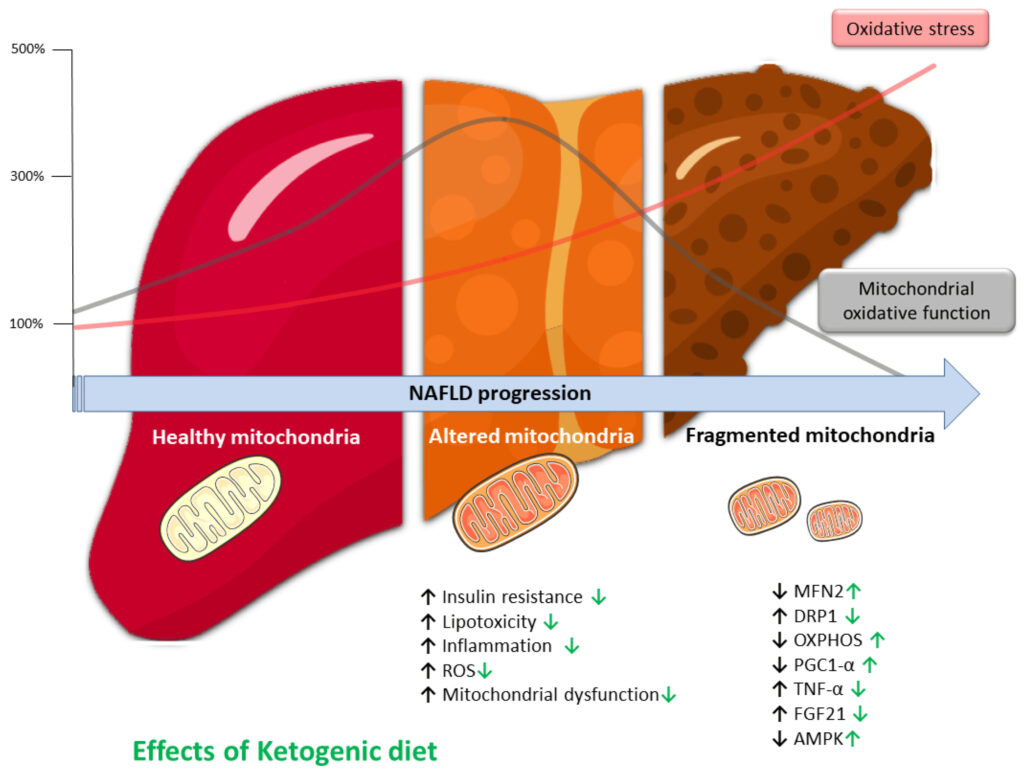
Source: https://www.mdpi.com/2076-3921/12/5/1065#
The Effects of Ketogenic Diets on Alcohol Addiction
Researchers have explored the effects of a ketogenic diet on alcohol addiction. The study was done with alcoholics in detox, where half were given a ketogenic diet, while the others followed a standard American diet, both alongside the same detox procedure. The ketogenic diet group had fewer withdrawal symptoms, felt fewer cravings for alcohol, and their brain scans showed better metabolism and less inflammation. This means changing their diet might help people quit drinking.
The Ketogenic Diet & The Brain
Researchers have also looked at how ketogenic diets affect the brain, especially in conditions like Alzheimer’s. When giving ketone supplements to people, one study found that it improved brain energy use in tests; even just reducing carbs in meals led to better brain function in some cases. Other studies showed improvements in daily activities, quality of life, and cognitive function when people are in ketosis. Some animal studies also revealed that the diet helps reduce brain plaques in Alzheimer’s models.
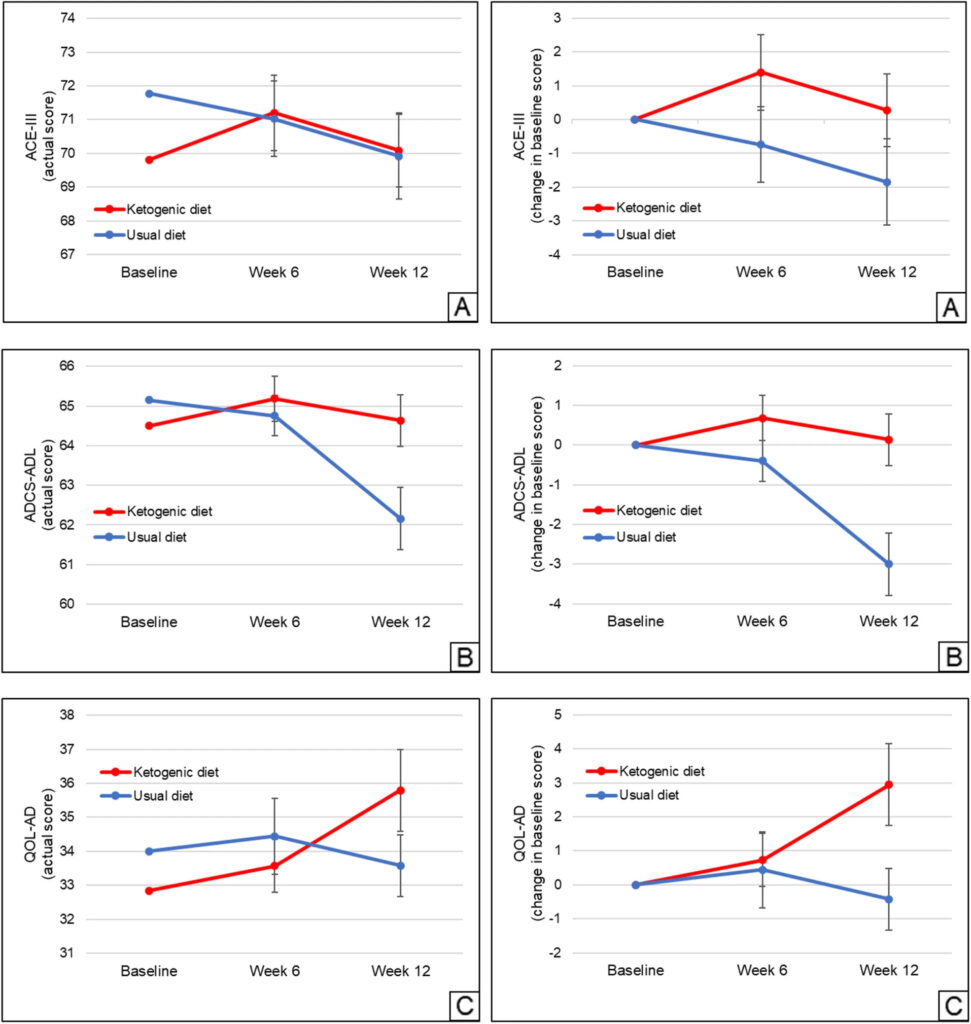
Source: https://alzres.biomedcentral.com/articles/10.1186/s13195-021-00783-x/figures/3
Do Ketone Supplements Work?
Whilst some believe Ketone supplements could help with mood disorders, there’s no solid evidence yet to confirm it. In children with epilepsy, for instance, where kids follow a strict ketogenic diet, adding these supplements doesn’t seem to stop seizures on their own. That’s probably because the ketogenic diet does more than just raise ketone levels — it lowers glucose and helps the body work better. Healthy people might benefit from these supplements. Yet current research shows that not all parts of the brain can use ketones — some still need glucose.
Potential Side Effects Of A Ketogenic Diet
Sometimes, using the ketogenic diet can lead to a state called hypomania, where people feel too good and require less sleep, which can be problematic. Addressing sleep habits and getting enough rest can often solve this issue, and supplements like melatonin and magnesium might help. In serious mental health cases, when health professionals usually aim for long-term ketosis, prescription sleep medications are often considered temporarily to break the hypomanic cycle if sleep problems persist.
Ketosis & Hormones
The impact of ketosis on the endocrine system remains an ongoing area of study. When couples try the ketogenic diet to lose weight together, men often find it easier than women — which might be due to hormones. Studies in mice showed that females on the ketogenic diet didn’t get pregnant, unlike those on a regular diet. Which makes sense, given that the keto diet imitates fasting, and when a woman’s body is fasting, it might not want to invest energy in creating a baby. That said, solid data is still scarce.
Another Weight-Loss Drug?
There’s much talk about semaglutide, a diabetes drug now being tested for obesity. It works by affecting glucose and insulin processes in the body and brain, leading to weight loss. Similar effects were seen with past drugs like Dexedrine and Amphetamine, which kept people slim but also created addiction problems. Sure, these new meds work short-term. But many experts view obesity as a symptom of metabolic issues, so merely treating weight loss may not address the core problem. Instead, identifying and addressing the cause of metabolic problems could have more lasting effects.
There is zero doubt in my mind that the obesity epidemic is a threat to human health and potentially the human species. If it keeps going at the rate it’s going, it is a threat to our species. We have to figure out what on Earth is happening, and what can we do about it.
Dr. Chris Palmer
All that said, ketogenic diets aren’t one-size-fits-all. They require tailored approaches based on health, goals, and willingness to change diet. When designing a ketogenic diet, the person’s weight is a primary consideration. For obese individuals, carb restriction is prioritised, while those with a slim physique may need to increase their fat intake to maintain ketosis. But if a person is not under psychiatric care or on prescriptions but is feeling burned out, cutting carbs temporarily for a mental energy boost could be the way to go.


